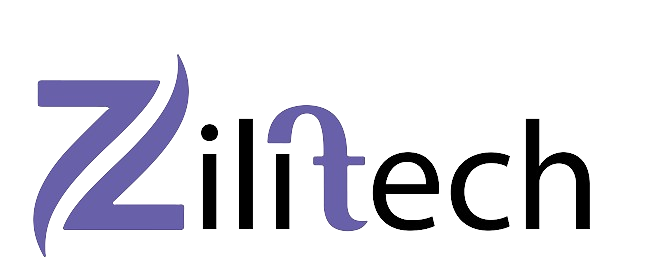Choosing a website hosting service is like picking the foundation for your online home. In 2024, with the rapid evolution of technology and user expectations, the right choice can significantly impact your site’s speed, security, and overall success. Let’s dive into the best hosting options available this year and what makes each stand out.
Types of Website Hosting
Shared Hosting
Shared hosting is akin to living in an apartment. You share resources (like CPU, memory, and disk space) with other websites on the same server. It’s affordable and user-friendly but can suffer from slower speeds if your neighbors (other websites) use more than their fair share.
Pros:
- Cost-effective
- Easy to use
- Ideal for beginners
Cons:
- Limited resources
- Potential for slower speeds
- Less control over server settings
VPS Hosting
VPS (Virtual Private Server) hosting offers a middle ground between shared and dedicated hosting. Imagine it as owning a condo; you have your own space (virtual server) but still share the physical building with others.
Pros:
- More control and flexibility
- Better performance than shared hosting
- Scalability
Cons:
- More expensive than shared hosting
- Requires some technical knowledge
Dedicated Hosting
Dedicated hosting is like owning a house. You have an entire server to yourself, providing maximum control, performance, and security.
Pros:
- Complete control over the server
- High performance
- Enhanced security
Cons:
- High cost
- Requires technical expertise
Cloud Hosting
Cloud hosting is the modern approach, likened to a vast apartment complex with scalable units. Your website is hosted on a network of servers, providing flexibility and reliability.
Pros:
- Scalability
- High uptime and reliability
- Pay-as-you-go pricing
Cons:
- Can be complex to manage
- Variable costs
Managed Hosting
Managed hosting takes the hassle out of server management. It’s like having a concierge service that handles maintenance, updates, and security, leaving you free to focus on your content or business.
Pros:
- Managed by experts
- Regular updates and maintenance
- Excellent support
Cons:
- Higher cost
- Less control over server settings
Key Factors to Consider
Choosing the right hosting service involves more than just picking a name from a list. Here’s what you need to think about:
Performance and Uptime
Your website’s performance, including load times and uptime (the percentage of time your site is online), is crucial. Look for hosting services with a strong track record of high uptime and fast server response times.
Security Features
With cyber threats on the rise, robust security features are non-negotiable. Ensure your hosting provider offers SSL certificates, regular backups, DDoS protection, and firewall options.
Scalability
Your hosting needs today might not be the same as next year. Choose a provider that allows easy upgrades and scalability to accommodate traffic growth or additional features.
Customer Support
When things go wrong (and they occasionally will), responsive customer support can be a lifesaver. Opt for providers known for their 24/7 support via various channels.
Pricing
Price is always a factor, but don’t be swayed by the lowest offer. Consider what you’re getting for your money in terms of performance, features, and support. Sometimes paying a little more upfront can save headaches later.
Top Website Hosting Services for 2024
Bluehost
Overview: Bluehost remains a popular choice in 2024, especially for beginners. Known for its user-friendly interface and reliable performance, it’s a solid option for various website types.
Features:
- Free domain for the first year
- 24/7 support
- 1-click WordPress installation
- Free SSL certificate
Pricing: Starts at $2.95/month for the basic plan.
Pros:
- Affordable
- Great customer support
- Easy to use
Cons:
- Higher renewal rates
- Limited for advanced users
HostGator
Overview: HostGator is well-known for its scalability and robust infrastructure, making it a good choice for both small and large sites.
Features:
- Unmetered bandwidth
- Free website builder
- 24/7/365 support
- 45-day money-back guarantee
Pricing: Starts at $2.75/month for shared hosting.
Pros:
- Flexible plans
- Strong uptime
- Extensive support resources
Cons:
- Upselling during signup
- Average speed compared to competitors
SiteGround
Overview: SiteGround is praised for its excellent customer support and performance optimization features, making it a favorite for WordPress users.
Features:
- Free daily backups
- Managed WordPress hosting
- Advanced security features
- Free CDN and SSL
Pricing: Starts at $3.99/month for the StartUp plan.
Pros:
- Excellent support
- High performance
- Strong security
Cons:
- Limited storage on lower-tier plans
- Higher cost than some competitors
A2 Hosting
Overview: A2 Hosting is known for its speed-optimized services and developer-friendly options, ideal for more tech-savvy users.
Features:
- Turbo servers for faster speeds
- Free site migration
- Anytime money-back guarantee
- Developer-friendly tools
Pricing: Starts at $2.99/month for the Startup plan.
Pros:
- Very fast
- Great for developers
- Flexible plans
Cons:
- Renewal rates can be high
- Complex interface for beginners
InMotion Hosting
Overview: InMotion offers a balance of performance, security, and customer service, suitable for both personal and business websites.
Features:
- Free domain and website migration
- Unlimited bandwidth and email
- SSD storage
- 90-day money-back guarantee
Pricing: Starts at $2.49/month for the Launch plan.
Pros:
- Reliable performance
- Generous money-back guarantee
- Good support
Cons:
- No Windows-based servers
- Account activation can be slow
DreamHost
Overview: DreamHost offers flexible and affordable hosting with a focus on WordPress integration, making it a great choice for bloggers and small businesses.
Features:
- Free domain and privacy protection
- Automated WordPress migrations
- 100% uptime guarantee
- Custom control panel
Pricing: Starts at $2.59/month for the Shared Starter plan.
Pros:
- Great for WordPress
- Transparent pricing
- Good for privacy-focused users
Cons:
- Limited live support options
- Custom control panel might take time to learn
WP Engine
Overview: WP Engine is a premium managed WordPress hosting service known for its superior performance and extensive developer tools.
Features:
- Automated backups and updates
- Advanced security features
- Developer-friendly environment
- Proprietary caching technology
Pricing: Starts at $20/month for the Startup plan.
Pros:
- Top-notch performance
- Excellent support
- Great for developers
Cons:
- Expensive
- Limited to WordPress
Hostinger
Overview: Hostinger offers affordable plans without compromising on performance or features, making it a great budget-friendly option.
Features:
- Free domain and SSL
- Optimized for speed
- 24/7/365 support
- Intuitive control panel
Pricing: Starts at $1.99/month for the Single Shared Hosting plan.
Pros:
- Very affordable
- Easy to use
- Good performance
Cons:
- Limited features on the lowest plan
- No phone support
Specialty Hosting Services
GreenGeeks
Overview: GreenGeeks stands out for its eco-friendly approach, offering carbon-neutral hosting that’s great for environmentally conscious users.
Features:
- 300% green energy match
- Free nightly backups
- SSD storage
- 24/7 support
Pros:
- Environmentally friendly
- Good performance
- Comprehensive features
Cons:
- Pricing slightly higher
- Fewer advanced features
Kinsta
Overview: Kinsta is a premium managed hosting service known for its performance and reliability, geared towards high-traffic sites.
Features:
- Google Cloud Platform
- Automatic scaling
- Advanced security
- 24/7 support
Pros:
- Excellent performance
- Great support
- Developer-friendly
Cons:
- Expensive
- Not ideal for small sites
Liquid Web
Overview: Liquid Web offers premium managed hosting solutions with a focus on high availability and enterprise-level support.
Features:
- Managed WordPress and WooCommerce
- High-performance servers
- 24/7/365 support
- Custom solutions available
Pros:
- Excellent support
- Great for businesses
- Highly customizable
Cons:
- High cost
- Overkill for small websites
How to Choose the Right Hosting Service for Your Needs
When selecting a hosting service, consider your website’s specific requirements. Are you running a small blog, a business site, or an e-commerce platform? Your choice should reflect your site’s traffic, complexity, and growth potential.
Assess Your Website’s Requirements
Understand what you need in terms of bandwidth, storage, and special features. A small blog has different needs compared to an online store.
Budget Considerations
Determine how much you’re willing to spend. While budget hosting services can be tempting, remember to weigh the trade-offs in performance and support.
Future Growth
Consider where your website might be in a year or two. Choose a host that offers scalability so you can upgrade your plan as your traffic grows.
Conclusion
The best website hosting service for you in 2024 depends on your specific needs, budget, and future plans. From affordable shared hosting to high-performance managed solutions, there’s a perfect fit out there. Evaluate your options, prioritize the features that matter most to you, and choose a hosting service that will support your online journey effectively.
FAQs
What is the best website hosting service for beginners?
For beginners, Bluehost is often recommended due to its ease of use, affordability, and excellent customer support.
How important is customer support in a hosting service?
Customer support is crucial, especially if you’re not technically inclined. Good support can help resolve issues quickly, minimizing downtime.
Can I switch hosting providers easily?
Yes, most hosting providers offer migration services to help you switch with minimal downtime and hassle.
What are the risks of choosing cheap hosting?
Cheap hosting might lack essential features, offer poor performance, or have unreliable support, which can hurt your website in the long run.
How do I ensure my hosting service is secure?
Choose a provider that offers robust security features such as SSL certificates, regular backups, and DDoS protection.



